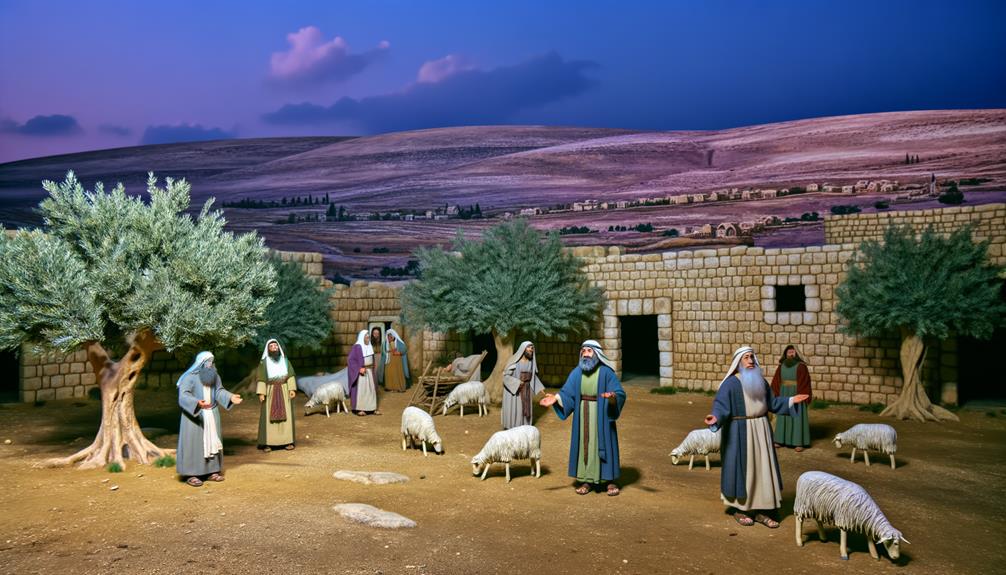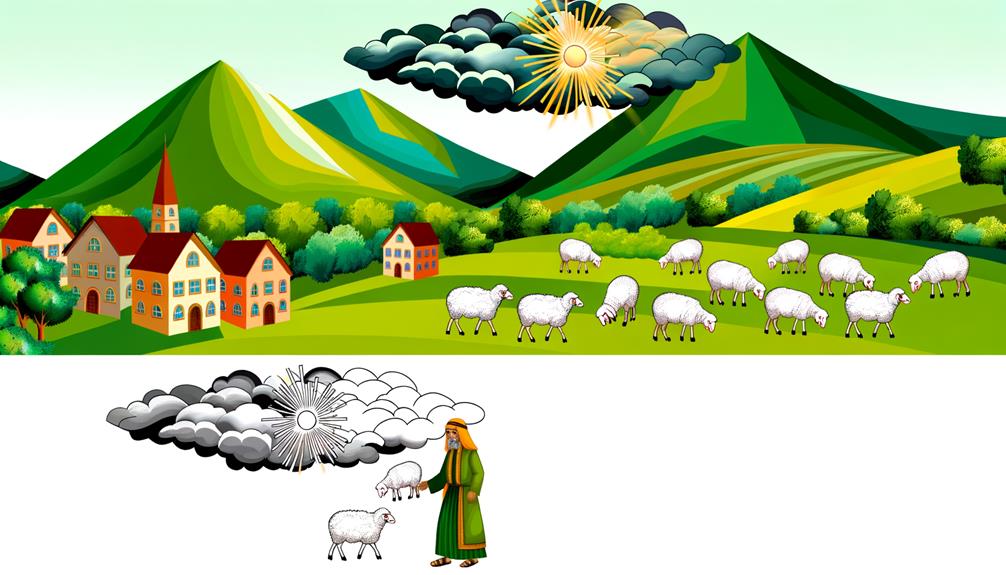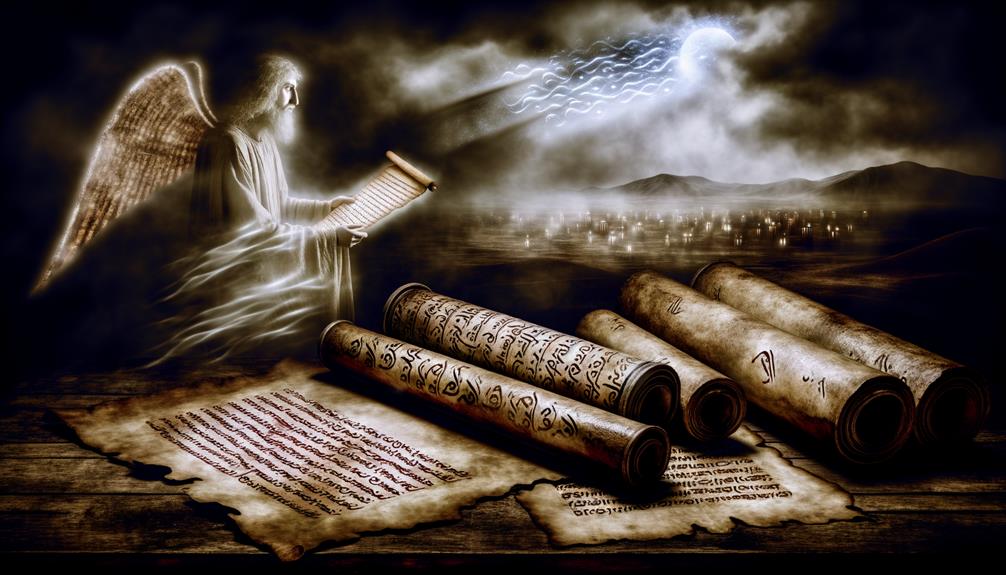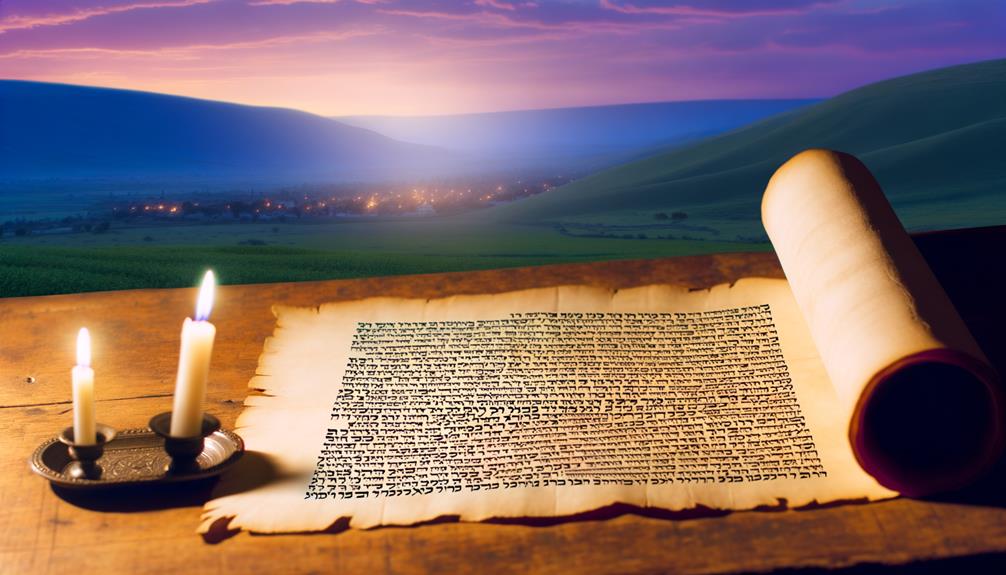Meaning of the Book of Micah in the Bible: Justice and Mercy
The Book of Micah is a prophetic text from the 8th century BCE addressing social injustices, corruption, and idolatry in Judah and Israel amidst Assyrian expansion. It emphasizes themes of divine justice and covenantal faithfulness, warning of impending judgment while promising restoration.
The text highlights the moral obligations between God and His people through vivid imagery, poetic structures, and powerful oracles. Its dual focus on condemnation and hope makes it relevant today, urging societies to reflect on ethical conduct and divine principles.
This brief exploration only begins to uncover the depth of Micah’s poignant messages.

Meaning of the Book of Micah in the Bible: Justice, Mercy, and Hope
| Aspect | Details |
|---|---|
| Book Overview | A prophetic book addressing Israel and Judah’s sins, God’s judgment, and His promise of restoration and hope. |
| Key Themes | Justice, mercy, humility, divine judgment, restoration, and the coming Messiah. |
| Main Characters | Micah (the prophet), the people of Israel and Judah, and God. |
| Key Events | Warnings of destruction for corruption and idolatry, call for repentance, prophecies of restoration, and the promise of a ruler from Bethlehem. |
| Symbolism | Shepherd: God’s care and leadership; Zion: Restoration and hope; Bethlehem: Humble origins of the future Messiah. |
| Historical Context | Written by the prophet Micah around 740–686 BCE during the reigns of Jotham, Ahaz, and Hezekiah in Judah. |
| Purpose of the Book | To call out sin, urge repentance, and reveal God’s ultimate plan of redemption and peace through the Messiah. |
| Lessons for Today | Highlights the importance of justice, mercy, and humility, emphasizing faith in God’s promises despite current challenges. |
Historical Context

To fully grasp the meaning of the Book of Micah, it is essential to understand the historical context in which it was written, particularly the socio-political and religious landscape of 8th century BCE Judah and Israel.
During this period, both kingdoms faced significant external threats from Assyrian expansion. Internally, they grappled with social injustices, widespread corruption, and religious syncretism.
Micah, a contemporary of Isaiah, emerged as a prophetic voice challenging the status quo. His oracles were directed at both the ruling elite and common people, condemning exploitation and idolatry.
Understanding this milieu provides vital insight into the urgency and fervor behind Micah’s messages, as he sought to call the nation back to covenant fidelity and divine justice amidst pervasive moral decay.
Key Themes

Central to the Book of Micah are themes of divine justice, covenantal faithfulness, and the impending judgment and restoration of Israel.
Micah’s prophetic discourse highlights Yahweh’s unwavering commitment to justice, condemning social injustices and corrupt leadership.
The prophet underscores the covenantal obligations between God and His people, emphasizing fidelity to divine commandments.
The dual aspects of judgment and restoration are intricately woven, with warnings of impending doom due to Israel’s transgressions, yet coupled with promises of renewal and hope.
This theological tension reflects God’s righteous nature and His enduring mercy.
Micah’s message remains relevant, offering a profound reflection on the relationship between divine justice and human responsibility within the covenantal framework.
Prophecies and Messages

Micah’s prophecies and messages encapsulate the profound interplay between divine judgment and the promise of restoration, providing a theological framework that underscores the urgency of repentance and the hope of redemption. His proclamations highlight the moral failings of Israel, specifically targeting injustices and idolatry. Central to Micah’s message is the dual theme of impending divine retribution juxtaposed with eventual renewal and peace. These prophecies are not merely historical pronouncements but serve as enduring spiritual admonitions.
| Divine Judgment | Promise of Restoration |
|---|---|
| Condemnation of injustice | Future peace and security |
| Denouncement of idolatry | A new shepherd for Israel |
| Destruction of evil | Rebuilding of Jerusalem |
| Punishment for sins | Gathering of the remnant |
| Call for repentance | Everlasting covenant |
Micah’s prophecies consequently offer an extensive theological insight into God’s justice and mercy. He emphasizes the importance of social justice, urging the people to act justly while reminding them that God’s compassion is ever-present. This balance between justice and love is epitomized in the concept of the mercy seat in the bible, where God’s grace meets the weight of sin, inviting believers to find hope and redemption through sincere repentance. Through his messages, Micah challenges us to reflect on our own lives and align our actions with God’s divine will.
Literary Style

Often characterized by its vivid imagery and poetic structure, the literary style of the Book of Micah profoundly enhances its theological message. The text uses rich metaphors and similes to convey divine judgment and hope, creating a compelling narrative that reflects both condemnation and redemption. The alternating patterns of doom and promise serve to emphasize the dual nature of God’s relationship with Israel.
Key literary elements include:
- Imagery and Metaphor: Micah uses striking visual language, such as ‘mountains melting’ to depict impending judgment.
- Parallelism: A common Hebrew poetic device, it reinforces key themes through repetition and symmetry.
- Prophetic Oracles: These declarations are structured to announce both immediate and future implications of Israel’s actions.
This sophisticated literary style not only engages readers but also deepens their understanding of Micah’s divine messages.
Relevance Today

The profound literary style of the Book of Micah invites contemporary readers to reflect on its enduring theological significance in today’s socio-political and spiritual contexts.
Micah’s call for justice, mercy, and humility (Micah 6:8) transcends time, urging modern societies to address systemic injustices and ethical decay. The prophet’s critique of corrupt leaders and false prophets resonates with current struggles against political corruption and misinformation.
Additionally, Micah’s vision of a peaceful future under divine rule (Micah 4:3-4) offers hope amidst global conflicts and societal fragmentation.
Consequently, the Book of Micah serves as both a mirror and a guide, challenging individuals and communities to align their actions with divine principles of righteousness and compassion.
Conclusion
The Book of Micah, situated within the tapestry of Israelite history, offers profound insights into divine justice, societal ethics, and eschatological hope.
It employs a rich literary style to convey its oracles, blending judgment with promises of restoration.
In contemporary discourse, Micah’s messages resonate as timeless calls for justice and humility, urging societies to reflect on moral imperatives and the enduring quest for righteousness.
This ancient text consequently remains a beacon for ethical and spiritual contemplation.






